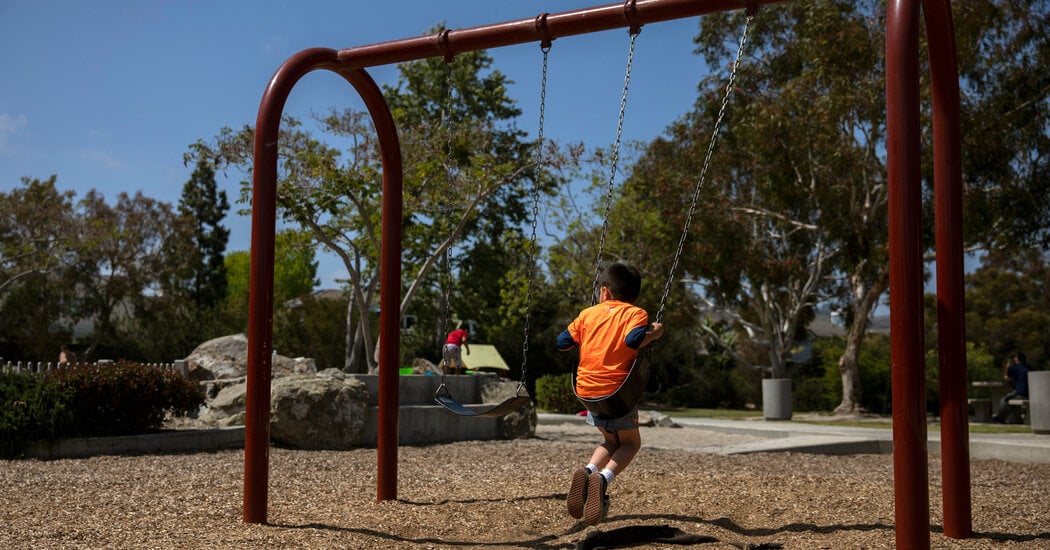It’s probably not selfishness, experts say. Even young adults who want children see an increasing number of obstacles.
For years, some conservatives have framed the declining fertility rate of the United States as an example of eroding family values, a moral catastrophe in slow motion.
JD Vance, the Republican vice-presidential nominee, recently came under fire for saying in 2021 that the nation was run by “childless cat ladies” who “hate normal Americans for choosing family over these ridiculous D.C. and New York status games.”
Last year, Ashley St. Clair, a Fox News commentator, described childless Americans this way: “They just want to pursue pleasure and drinking all night and going to Beyoncé concerts. It’s this pursuit of self-pleasure in replace of fulfillment and having a family.”
Researchers who study trends in reproductive health see a more nuanced picture. The decision to forgo having children is most likely not a sign that Americans are becoming more hedonistic, they say. For one thing, fertility rates are declining throughout the developed world.
Rather, it indicates that larger societal factors — such as rising child care costs, increasingly expensive housing and slipping optimism about the future — have made it feel more untenable to raise children in the United States.



Shrinking population will be the least of our problem, in fact the opposite will happen (despite globally shrinking population). Huge areas in the global south will become uninhabitable rather soon, and if we don’t want to be complicit in a global genocide we will have to take some of them in. This will more than off-set any local population decline and we will rather have to scramble to provide affordable housing to all.
Right. But also… As the population shrinks (in addition to AI / robotization), we’re on track for a global economic catastrophe.
When businesses can no longer grow, due to people not having enough money and there being fewer consumers, the stock markets will (slowly) crash. As that happens, corporations will scramble to keep afloat. As major employers struggle to employ workers, the unemployment rate rises. Combined: this means less tax revenue, less social services, less economic prosperity. People complain about inflation but deflation is far worse when the population is already in a decline. Governments will scramble to inject free money into the economy. Bonds could become worthless.
The global economy that’s been growing for the past fifty years may crumble in the next fifty years. People may need to rebuild smaller local economies.
It’s actually very interesting. As the population has grown and technology has put the entire planet in the palm of our hands, we as a civilization have grown more apart from each other - instead choosing to reside in the bubbles of our choosing. If the population declines and larger economies struggle, perhaps we’ll need to go back to a time with mom and pop shops and learn to be more neighborly.
In the near term, I think the economic impact would be far greater than ecological impact. Though I think the ecological impact certainly may have a more long term role to play in humanity’s story.
But, I’m not an expert in either of these things. I welcome any source materials studying the matter. I would imagine that some one / group has compiled a formula to define the perfect equilibrium for the planet - combining population growth, employment rates, productivity rates, energy consumption, depletion of natural resources, etc. I’d venture to guess we passed that point around 2010.